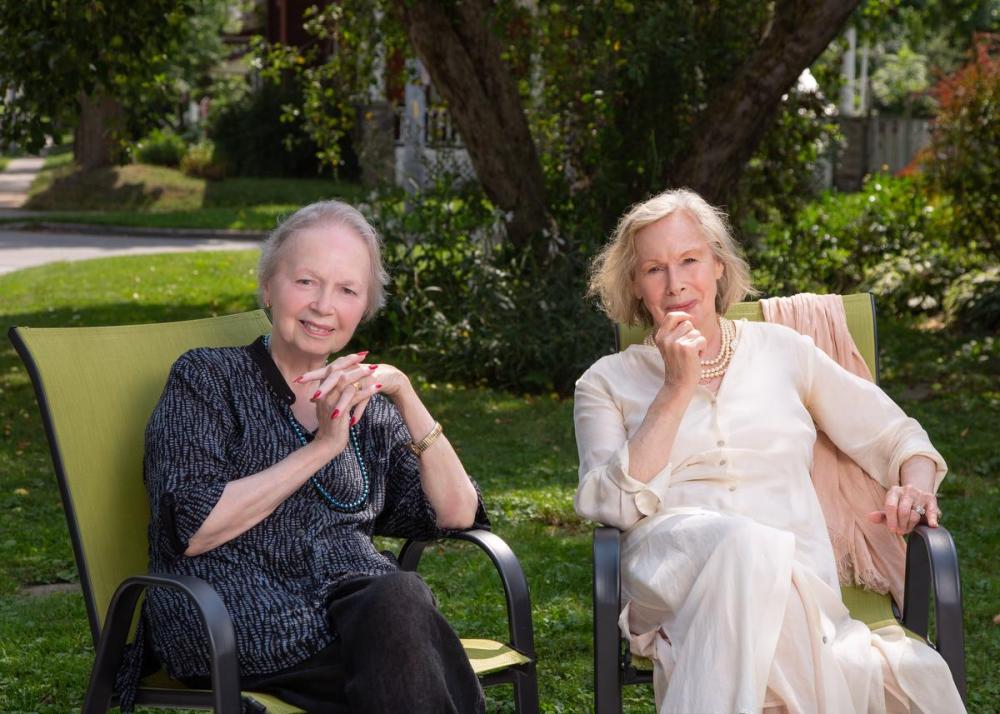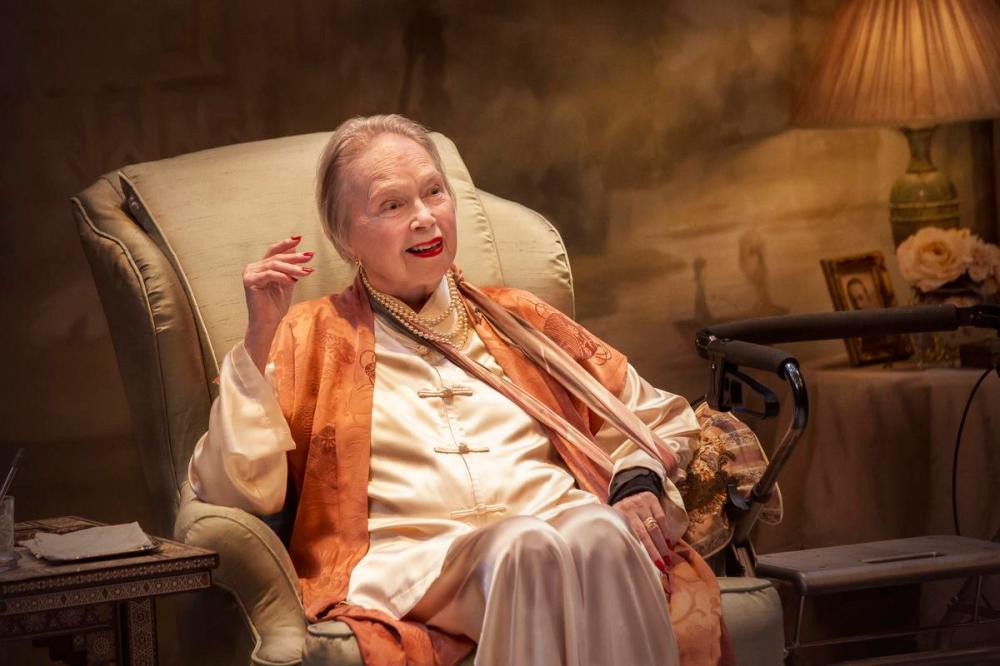Canadian theatre icon Martha Henry dies days after her final stage performance
Advertisement
Read this article for free:
or
Already have an account? Log in here »
To continue reading, please subscribe:
Monthly Digital Subscription
$1 per week for 24 weeks*
- Enjoy unlimited reading on winnipegfreepress.com
- Read the E-Edition, our digital replica newspaper
- Access News Break, our award-winning app
- Play interactive puzzles
*Billed as $4.00 plus GST every four weeks. After 24 weeks, price increases to the regular rate of $19.00 plus GST every four weeks. Offer available to new and qualified returning subscribers only. Cancel any time.
Monthly Digital Subscription
$4.75/week*
- Enjoy unlimited reading on winnipegfreepress.com
- Read the E-Edition, our digital replica newspaper
- Access News Break, our award-winning app
- Play interactive puzzles
*Billed as $19 plus GST every four weeks. Cancel any time.
To continue reading, please subscribe:
Add Free Press access to your Brandon Sun subscription for only an additional
$1 for the first 4 weeks*
*Your next subscription payment will increase by $1.00 and you will be charged $16.99 plus GST for four weeks. After four weeks, your payment will increase to $23.99 plus GST every four weeks.
Read unlimited articles for free today:
or
Already have an account? Log in here »
Hey there, time traveller!
This article was published 21/10/2021 (1451 days ago), so information in it may no longer be current.
“Her life became art.”
This is how Stratford Festival artistic director Antoni Cimolino is remembering Martha Henry, the legendary actor, director, educator and theatre leader who died on Oct. 21 at the age of 83.
Only 12 days before her death, Henry gave her last performance as the character “A” — an older, dying woman — in Stratford’s production of Edward Albee’s “Three Tall Women.”

Unbeknownst to most people outside the Stratford community, Henry was diagnosed with cancer in 2020. “Three Tall Women” was originally programmed for the summer of 2020 and the fact it was postponed due to COVID-19 ended up being a boon to Henry, who was able to receive treatment and take on the rescheduled production this year.
She grappled with pain and a deteriorating physical condition during the run of “Three Tall Women.” When it opened in late August, she was using a walker onstage and, in September, began performing from a wheelchair. As a Stratford Festival statement reported, Henry “delivered a commanding closing performance on Oct. 9, fulfilling her deepest desire to perform almost until drawing her last breath.”
“Her sense of responsibility to the theatre was so profound that it enabled her to endure pain and face down her terminal disease,” said Cimolino. “Our hearts are shattered. In losing Martha Henry we have lost the dearest friend, the most inspiring mentor and an unforgettable, original talent.”
Henry was born in Detroit, Michigan, in 1938. She moved to Canada after graduation from the Carnegie Institute of Technology (now Carnegie Mellon University) in Pittsburgh, having seen productions at the Stratford Festival.
“There was no place like Stratford in the States at all,” she said in a 1994 interview. “I saw great actors — Christopher Plummer, Bill Hutt — I could understand ‘Hamlet’! A door opened to me. It was so exciting and thrilling, and I thought any country that produced a Stratford was one I wanted to be a part of.”
She was a member of the first graduating cohort of actors from the National Theatre School in 1960 and became a Canadian citizen in 1970.
She joined the Stratford acting company in 1962, playing Miranda to William Hutt’s Prospero in “The Tempest” — a play she would revisit in 2018, playing Prospero. She performed in more than 70 productions at the festival. Notable performances include Mary Tyrone in “Long Day’s Journey Into Night” (1994), directed by her friend and National Theatre School classmate Diana Leblanc, who also directed “Three Tall Women”; and Beatrice in “Much Ado About Nothing” opposite one of her favourite leading men, Brian Bedford, directed by Richard Monette (1998.
Henry performed across Canada, in Washington, D.C., and in London, England. In Toronto, she starred in “Copenhagen” in 2004 for Mirvish Productions.
Mirvish planned to dim the marquee lights at all four of its Toronto theatres on Thursday night, calling Henry “a giant of theatre … a magnificent actor, an insightful and thoughtful director, a steadfast and intrepid producer, a nurturing teacher and mentor, and a generous, kind and inclusive member of the community.”
Henry directed 14 productions at Stratford, served as director of its Birmingham Conservatory (an acting training program) from 2007 to ’16, and as director of the Michael Langham Workshop for Classical Direction from 2017 to 2020.
She was artistic director of the Grand Theatre in London, Ont., from 1988 to ’94 and directed productions across Canada. She served two three-year appointments on the board of the Canada Council for the Arts, is a companion of the Order of Canada, a member of the Order of Ontario and a recipient of the Governor General’s Lifetime Achievement Award.

Henry also performed in film and television, winning five Genie Awards, including one for a film adaptation of “Long Day’s Journey Into Night,” and three Gemini Awards for her TV roles.
In a Star interview in late August with Leblanc — the last media interview she gave before her death — Henry did not reveal the extent of her illness, speaking instead of pressed nerve endings in her leg. She said that her experience of illness and aging was helping her deliver her character in “Three Tall Women,” who is experiencing memory loss.
“I don’t really have to go very far to understand A,” said Henry. “‘I can’t remember anything’ is a line that rips out of me every time.”
At the same time, working through the complexities of Albee’s text was a source of great pleasure for Henry. “You encounter something that you think, ‘Oh, yesterday, I didn’t completely understand that and today I do,’” she said. “And then tomorrow, ‘Oh, I didn’t completely understand that yesterday the way I thought I did.’ So he is constantly throwing things at you, and we can kind of hear him chuckle as he throws us these odd balls and we try to catch them.”
Henry said that ever since the moment she discovered theatre at the age of seven, it was “all I ever had in my head, ever.”
She insisted that becoming a “theatre person” was available to anyone: “If you’ve got something that you know is you, that you know is what you have to be or need to be … that’s what you do. And you find places to do it,” she said.
A memorial for Henry will be held in Stratford at an appropriate time, the festival said, and the first Shakespeare production in the new Tom Patterson Theatre will be dedicated to her memory.
Karen Fricker is a Toronto-based theatre critic and a freelance contributor for the Star. Follow her on Twitter: @KarenFricker2


